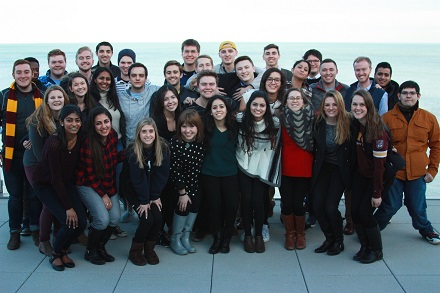I Am…
Two important events happened this past Sunday: the Super Bowl and the Student Government Mid-Year Training. The former may have had more impact on the general American population, but the latter meant more to me.
One of the first ideas introduced to us that day was the existence of multiple truths. My experiences have caused me to believe this to be true, while your experiences have caused you to believe that to be true. When we deliberate our disparate opinions, one is not right and the other is not wrong.
Our advisory displayed this quote on the projector: “You know my name, not my story. You’ve heard what I’ve done, not what I’ve been through.” Who am I? And who are you? How can we better learn about each other in order to become more understanding of each truth? Because without it, we cannot communicate effectively.
No one gets through life without having their beliefs questioned. Oftentimes, however, discussing contrasting viewpoints makes people uncomfortable or defensive, even aggressive. A conversation quickly turns into an argument. And we all know, confrontation rarely ends well.
Rollo May said, “Communication leads to community, that is, to underrating, intimacy and mutual valuing.” As senators, we would like the Student Government to be a small community healthily embedded within the larger Loyola community. Based on May’s quote, however, I think we are still in the process of moving toward that goal. Many people, myself included, claim to be good communicators. Yet, I have come to realize that possessing this skillset and adequately implementing them, is more difficult than one generally tends to assume. Effective communication requires listening, empathy, and patience. Open-mindedness is requisite. We must genuinely want to understand others.
As students, all of us are very good at identifying problems that need to be tackled and resolved. We are the first born-digital generation, we are skilled at voicing our opinions through social media. However, as agents of change, we are not very profound critical thinkers, not the most agile problem solvers. Rarely can we provide viable solutions to our identified problems. We also hate to compromise. We become so ingrained in our own opinions, we start believing that those who are not with us, are categorically against us.
As a student government senator, I hold myself to a higher standard, because I strive to be more open to the opinions of students, administration, and faculty, knowing that, without understanding, I cannot effectively communicate and make positive change.

